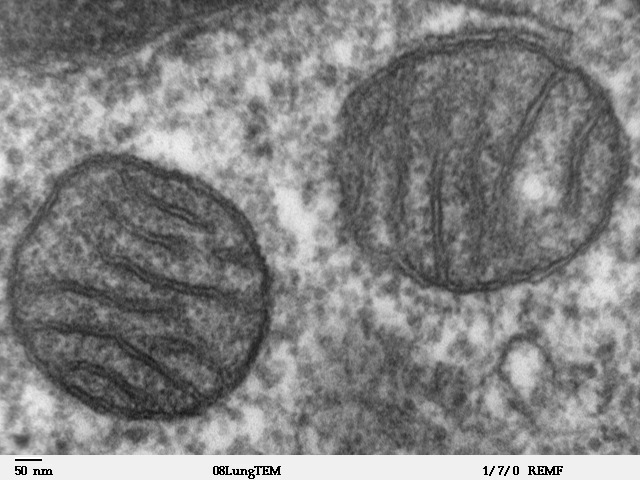We're open daily! View holiday hours
Science News
Spark of Life
October 25, 2010
0

Billions of years ago, life on Earth was simpler. Singular-celled prokaryotes, much like bacteria today, inhabited the planet.
Then, only once, a spark allowed these cells to evolve into something more complex—eukaryotic cells, which make up the plants, fungi and animals we know today.
For 70 years we’ve known about this process, but not the “how” of it. Last week, British scientists, publishing in the journal Nature, hypothesize on the key to this spark: mitochondria.
At the level of our cells, humans have far more in common with mushrooms, magnolias and marigolds than we do with bacteria. The reason is that complex cells like those of plants, animals and fungi have specialized compartments including an information center, the nucleus, and power stations—mitochondria. We call these compartmentalized cells “eukaryotic,” and they all share a common ancestor that arose just once in four billion years of evolution.
The authors of the study, Nick Lane and William Martin, propose that with the energy that mitochondria supply, an average eukaryotic cell can support an astonishing 200,000 times more genes than bacteria. Voilà! Complex life! (Read Ed Yong’s blog on Discover for more details.)
And perhaps this spark happened not only once-in-a-lifetime, but once-in-all-time. In other words, what does this mean for life on other planets?
Scientists have conceded that when (and if) we do find life on other planets it will most likely resemble the simple prokaryotes on Earth.
New Scientist puts it this way:
Acquiring mitochondria, it seems, was a one-off event. This leads Lane and Martin to their most striking conclusion: simple cells on other planets might thrive for eons without complex life ever arising. Or, as Lane puts it: “The underlying principles are universal. Even aliens need mitochondria.”
(Or at least intelligent aliens.)
In less than two weeks, a new, original planetarium show opens at the Academy. Narrated by Jodie Foster, Life: A Cosmic Story visualizes the formation of the universe and takes us through the beginnings of life here on Earth. Watch the stunning trailer here.
0